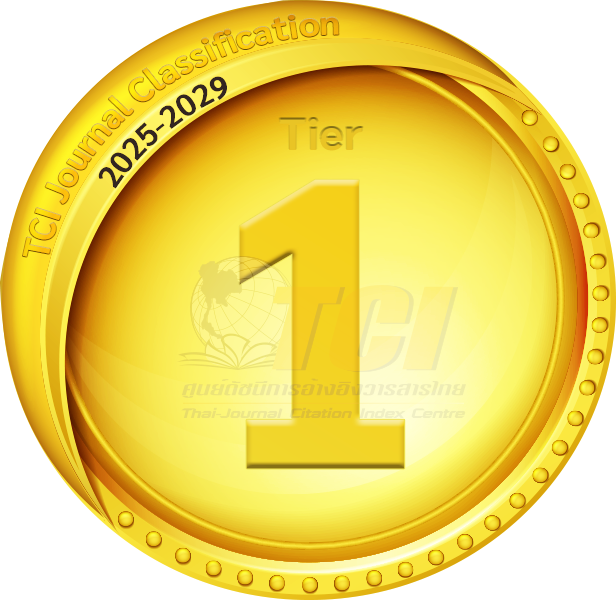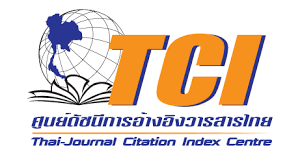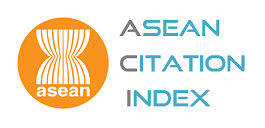The Current Status and Influence of Chinese National Self-Confidence on Out-Group Trust during the Tokyo Olympics - A Survey of the Mainland Chinese Public
- Zheng Zheyun, College of Social Innovation, Rangsit University, Pathum Thani, Thailand, E-mail: zhengzheyun@gmail.com
Abstract
The Tokyo Olympics was different from the motto of previous Olympics, especially incorporating the concept of “togetherness”. In today’s complex world, it is necessary for big countries to trust each other, eliminate barriers, and work together to unite and cooperate. During the Tokyo Olympics, China’s Internet community had a large-scale discussion in the face of discordant voices. The Tokyo Olympics should have been used to improve the trust of the mainland Chinese in other countries and regions, however; it proved to be counterproductive. Hence, this article discusses the issue of national self-confidence in mainland China and out-group trust. A survey of 714 mainland Chinese was conducted by initially establishing an effective national self-confidence scale and using an established out-group trust scale. It was found that the mainland Chinese public has good national self-confidence and a middle-level of out-group trust. National self-confidence and out-group trust are affected by age, education level, and region. SEM analysis showed that the national self-confidence had a moderately positive effect on the trust of out-groups while Independent group t-tests showed that the Olympic Games had a catalyzing influence on that relationship, increasing distrust of out-groups that previously had negative perceptions and creating more trust for out-groups that previously had positive perceptions.
Keywords: Chinese national self-confidence, Out-group trust
DOI: 10.14456/rjsh.2022.6
References
Akhir, M., Govindasamy, G., & Paidi, R. (2021). The Disruption of the 1940 and 2020 Tokyo Olympics: Sports Diplomacy During War and Pandemic. WILAYAH: The International Journal of East Asian Studies, 10(1), 61-81.
BBC News. (2021). Tokyo Olympics: Chinese nationalists turn on their athletes. Retrieved from https://www.bbc.com/news/world-asia-china-58024068.
Brain, G., & Carlson. (2021). Strategic Trends 2021 (pp. 11-33). Zurich, Switzerland: Center for Security Studies.
Business Line. (2021). India Olympic team needs a billion fans. Retrieved from https://www.thehindubusinessline.com/opinion/indian-olympic-team-needs-a-billion-fans/article35474069.ece
Chey, M. (2021). China in American-Korean Relations. Honolulu, US: University of Hawaii Press.
China development. (2021). The largest number of Koreans live in China, Shanghai is the most attractive for foreign friends. Retrieved from www.chinadevelopment.com.
Diotaiuti, P., Marco-Zona, A., & Rea, L. (2015). Influence of emotional induction and free or forced affiliation on in-group and out-group trust attitude. IAFOR Academic Review, 1(1), 31-38.
Foddy, M. & Yamagishi, T. (2009). Group-Based Trust. New York, US: Russell Sage Foundation.
Global Times. (2021). US gymnast Sunisa Lee warms netizens’ hearts with show of support for 16-year-old gold medalist Guan Chenchen - Global Times. Retrieved from https://www.globaltimes.cn/page/202108/1230602.shtml
Güth, W., Levati, V., & Ploner, M. (2008). On the social dimension of time and risk preferences: An experimental study. Economic inquiry, 46(2), 261-272.
Hale, T., & Sun, Y. (2021). China’s economy expands at faster rate than before coronavirus. Retrieved from http://ft.com/content/ac22618a-4bab-4905-af81-a031a54e9617.
Han, J., Zhang, R., & Ma, Z. (2008). Analysis on Reasons of Widening Development Gap between the Easter Region and the Western Region in China. Science, Economy, Society, 26(1), 11-15.
Hardin, R. (2008). Trust. Cambridge, UK: Polity Press.
Ho, R. (2006). Handbook of Univariate and Multivariate Data Analysis and Interpretation with IBM SPSS. Florida, US: Chapman and Hall /CRC Press.
Huang, J., & Deng, Y. (2012). Higher education and social trust: A study based on Chinese and British survey data. Social Sciences in China, 11, 98-111
Huang, Y. (2020). An Empirical Study on the Status and Influencing Factors of University Students’ "Four Confidences" (Master thesis). Henan University of Economics and Law.
Jeffery, N. (2021). Barshim and Tamberi, an incredible story of friendship and shared gold. Retrieved from https://worldathletics.org/news/feature/barshim-tamberi-friendship-tokyo-olympics-gold
Jin, H. (2019). Research on the Development of Socialism with Chinese Characteristics from the Perspective of Four Self-Confidence. Open Journal of Political Science, 10(1), 41-49.
Kramer, R. M. (1999). Trust and distrust in organizations: Emerging perspectives, enduring questions. Annual review of psychology, 50(1), 569-598.
Kramer, R. (2018). Ingroup-outgroup trust: Barriers, benefits, and bridges. Oxford, UK: Oxford University Press.
Lai, P. (2018). Research methodology for novelty technology. JISTEM-Journal of Information Systems and Technology Management, 15, 1-18.
Lu, H., Tong, P., & Zhu, R. (2020). Does Internet use affect netizens’ trust in government? Empirical evidence from China. Social Indicators Research, 149(1), 167-185.
Meng-ying, L. I. (2021). “Nei Juan” in Exam-oriented Education in China. Journal of Literature and Art Studies, 11(12), 1028-1033.
MINNEWS. (2021a). Mima Ito refused to accept the loss of the game, publicly provoked public anger, Deng Yaping's domineering counterattack was really relieved. Retrieved from https://min.news/en/sport/8a8f4447ebc5a4937d6565984fe4922a.html
MINNEWS. (2021b). Compassionately! Zhang Yufei took the initiative to embrace the Japanese star who defeated leukemia. Retrieved from https://min.news/en/sport/064f7505ea9fc74ce92c72e0ed6896b6.html
National Bureau of Statistics of China. (2021). Communiqué of the Seventh National Population Census No. 3. Retrieved from http://www.stats.gov.cn/english/PressRelease/202105/t20210510_1817188.html
Noor, M., James Brown, R., & Prentice, G. (2008). Precursors and mediators of intergroup reconciliation in Northern Ireland: A new model. British Journal of Social Psychology, 47(3), 481-495.
Orlowitz, D. (2021). How social media magnified the controversy over Daiki Hashimoto's all-around gold. Retrieved from https://www.japantimes.co.jp/sports/2021/08/04/olympics/summer-olympics/olympic-gymnastics/daiki-hashimoto-judging/
Silver, L., Devlin, K., & Huang, C. (2020). Unfavorable views of China reach historic highs in many countries. Retrieved from https://www.pewresearch.org/global/2020/10/06/unfavorable-views-of-china-reach-historic-highs-in-many-countries/
Stolle, D. (2002). Trusting strangers–the concept of generalized trust in perspective. Österreichische Zeitschrift für Politikwissenschaft, 31(4), 397-412.
Sung, P., & Son, J. (2020). In-group trust and self-rated health in East Asia using quadri-national survey data. International Journal Of Comparative Sociology, 61(1), 27-58.
The Genron NPO. (2020). Japan-China Public Opinion Survey 2020. The 16th Joint Public Opinion Poll, Tokyo. Retrieved from https://www.genron-npo.net/en/201117_en.pdf
Tokyo 2020. (2021). Top moments from the Opening Ceremony of the Tokyo 2020 Paralympic Games. Retrieved from https://olympics.com/tokyo-2020/en/paralympics/news/top-moments-from-the-opening-ceremony-of-the-tokyo-2020-paralympic-games
Voci, A. (2006). The link between identification and in‐group favouritism: Effects of threat to social identity and trust‐related emotions. British Journal of Social Psychology, 45(2), 265-284.
Wang, D. (2014). Research on Training and Developing University Students’ Self-confidence and Trust by PE. Physical Education Review, (10), 125-128.
Wang, H., Zhao, C., & Ming, L. (2009). Hukou, Social Segmentation and Trust: Empirical Evidence from Shanghai. The Journal Of World Economic, 32(10), 81-96.
Wang, J. (2021). Annual Report on Social Mentality of China 2020. Beijing, China: Social Sciences Academic Press.
Wei, S. (2017). The Relation of Intergroup Contact and Out-group Trust: Mediator Role of In-group Identification. Psychological Exploration, 37(1), 54-58.
Weihua, F. A. N. G., & Zonggang, X. U. (2021). Generating Mechanism of “Involution” for Grass-roots Democratic Consultation: Exploratory Research Based on Grounded Theory. Journal of Beijing University of Aeronautics and Astronautics Social Sciences Edition, 34(2), 80-90.
Welzel, C., & Delhey, J. (2015). Generalizing trust: The benign force of emancipation. Journal of Cross-Cultural Psychology, 46(7), 875-896.
Wu, C., & Shi, Z. (2020). Education and social trust in transitional China. Chinese Sociological Review, 52(2), 115-143.
Xie, Y. (2015). China's City Brand Awareness Survey. Beijing, China: Social Sciences Academic Press.
Xin, S., Ming, L., & Xin, Z. (2013). Increasing intergroup trust: The approaches of social identity and intergroup contact. Advances in Psychological Science, 21(2), 290.
Xu, W. (2020). Japan-China Public Opinion Survey 2020. Retrieved from http://japan.people.com.cn/n1/2020/1118/c35421-31934815.html
Xue, L. (2021). Foreign identity can't be used as shield to escape punishment in China. Retrieved from https://www.globaltimes.cn/page/202106/1226630.shtml
Yan, Y. (2021). Reshape the Core Values of Socialism of College Students with the" Four-Confidence" Under the New Situation. Science, 9(2), 45-49.
Ye, X. (2015). Self-identity in Chinese Native Culture. Liberal Arts Guidance, (36),2-2.
Yicai Global. (2021). Ranking of Cities' Business Attractiveness in China 2021. Shanghai, China: Yicai Media Group.

Indexed in


Search